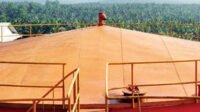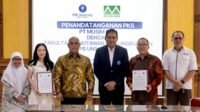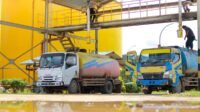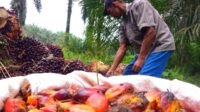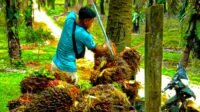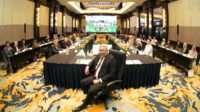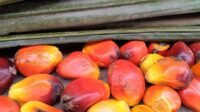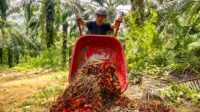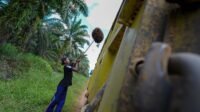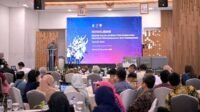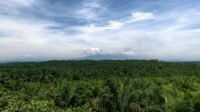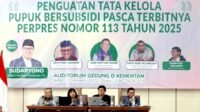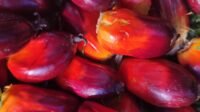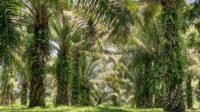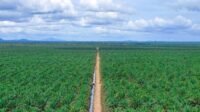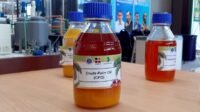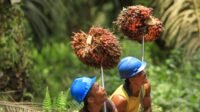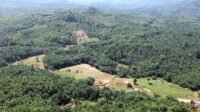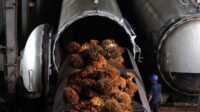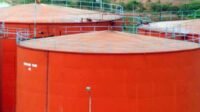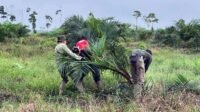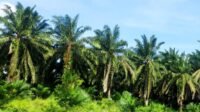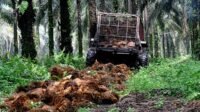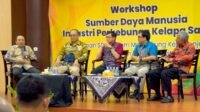PALMOILMAGAZINE, KUNINGAN – The controversy surrounding palm oil plantations in Kuningan Regency has resurfaced following revelations that PT Kelapa Ciung Sawit Sukses Makmur (KCSM) was operating without proper permits. In response, the Kuningan Regional Government held a meeting on Friday (March 21, 2025) at the Regional Secretariat Meeting Room. The meeting was attended by Kuningan Regent H. Dian Rachmat Yanuar, regional leadership officials (Forkopimda), the Chairman of Commission II of the Regional House of Representatives (DPRD), the acting regional secretary, sub-district heads, academics, environmental activists, and community representatives.
During the meeting, Regent Dian emphasized the importance of environmental conservation in Kuningan, known as the “lungs” of the West Java region. He also noted that West Java Governor Dedi Mulyadi has shown significant concern for environmental issues.
As an initial step, Regent Dian announced the temporary suspension of PT KCSM’s distribution and operations. “Before starting any activities, companies must obtain the necessary permits,” he stated, as quoted by Palmoilmagazine.com from the official Kuningan government website on Monday (March 24, 2025).
Also Read: EUDR Regulations Pose Challenges for Coffee and Oil Palm Farmers
He also warned against environmental exploitation without long-term considerations. “Many companies promise community empowerment at the beginning, but in reality, the opposite happens. We need to think ahead. Nature is not an inheritance; it is a trust,” he said.
PT KCSM, however, claimed that its plantation system follows an agroforestry model, integrating oil palm with other crops and livestock to enhance land productivity, diversify income, and promote environmental sustainability.
Despite these claims, Wahyu Hidayah, Head of the Kuningan Food Security and Agriculture Office, asserted that the company had not communicated or applied for any permits. “All plantation activities must have complete permits, including location permits, environmental permits, and plantation business permits,” he stated.
Professor Suwari Akhmaddhian from Kuningan University further clarified that under Kuningan Regency’s Spatial Planning Regulations until 2031, oil palm is not an approved commodity. “The permitted commodities are clove, coffee, and sugarcane,” he explained.
H. Jajang Jana, Chairman of Commission II of the Kuningan DPRD, revealed that discussions on halting oil palm planting had been ongoing since an earlier hearing on March 18, 2025. “Today’s meeting is a follow-up with the Regent and local government to find a solution, particularly for the affected farmers,” he said.
Meanwhile, representatives from the Anak Rimba Activists Community (AKAR) stressed the importance of environmental conservation. “We must protect nature to ensure it continues benefiting all living beings,” they stated.
Yusuf Dandi Asih, from the Kuningan Concerned Citizens Movement, called for a solution that benefits all stakeholders, especially small-scale farmers impacted by the policy. (P2)





